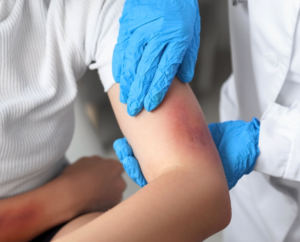Jun 2023
Video about the Narcotics Arrest Diversion Program
Topics
Methodologies
This video provides an overview of the Crime Lab’s evaluation of the Narcotics Arrest Diversion Program, a program implemented by the community behavioral health provider Thresholds.
In this program, individuals eligible for diversion are connected with a substance use counselor, are released without criminal charges, and face no threat of future prosecution related to the arrest.
Early findings of the study show that the program successfully engages participants in treatment and significantly reduces re-arrest rates, demonstrating that a sanction-free response to the opioid crisis can work at scale to help make cities safer and healthier.
NADP is a partnership between the Chicago Police Department, the Chicago High-Intensity Drug Trafficking Area, the Chicago Department of Public Health, and Thresholds.
Topics
Methodologies

Agent-Based Model of Combined Community- and Jail-Based Take-Home Naloxone Distribution
This paper outlines the impact and cost-effectiveness of naloxone distribution, particularly for people facing criminal justice involvement.

Empirical Analysis of Prediction Mistakes in New York City Pretrial Data

Policing Substance Use: Chicago’s Treatment Program for Narcotics Arrests – Working Paper
This working paper sheds light on the effectiveness of diversion programs by showcasing Chicago’s drug diversion program success in reducing drug-related arrests.

Brookings Institution Commentary: Making the invisible epidemic visible
Using new data from a large urban trauma center in Chicago, we document substantial under-reporting of domestic violence at the time of receiving medical care.
Latest Updates
Former NYPD Chief of Department Kenneth E. Corey Named Executive Director of the Policing Leadership Academy
CHICAGO, IL — The University of Chicago Crime Lab today announced that Kenneth E. Corey has been appointed Executive Director of its Policing Leadership Academy (PLA), a first-of-its-kind executive education program designed to help police leaders reduce gun violence and build trust in the communities they serve.

Homicide rate declines sharply in dozens of US cities, a new report shows
The AP’s Claudia Lauer speaks with Crime Lab faculty director Jens Ludwig about the declining homicide rate in cities across the United States.

What it will take to fix American policing
Host Megan McArdle speaks with former New York City police commissioner William Bratton and former NYPD chief and new Policing Leadership Academy executive director Kenneth E. Corey about their work at the Academy and the program’s goals to reduce violence and improve fairness in policing.

